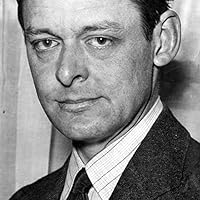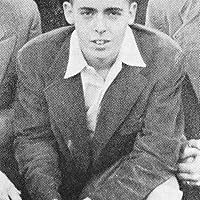Epistemology Quotes
Quotes tagged as "epistemology"
Showing 1-30 of 305
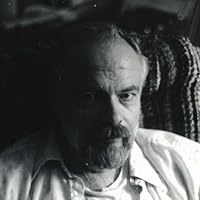
“Maybe each human being lives in a unique world, a private world different from those inhabited and experienced by all other humans. . . If reality differs from person to person, can we speak of reality singular, or shouldn't we really be talking about plural realities? And if there are plural realities, are some more true (more real) than others? What about the world of a schizophrenic? Maybe it's as real as our world. Maybe we cannot say that we are in touch with reality and he is not, but should instead say, His reality is so different from ours that he can't explain his to us, and we can't explain ours to him. The problem, then, is that if subjective worlds are experienced too differently, there occurs a breakdown in communication ... and there is the real illness.”
―
―
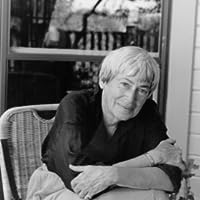
“The only thing that makes life possible is permanent, intolerable uncertainty: not knowing what comes next.”
― The Left Hand of Darkness
― The Left Hand of Darkness

“How is it that hardly any major religion has looked at science and concluded, “This is better than we thought! The Universe is much bigger than our prophets said, grander, more subtle, more elegant?” Instead they say, “No, no, no! My god is a little god, and I want him to stay that way.” A religion, old or new, that stressed the magnificence of the Universe as revealed by modern science might be able to draw forth reserves of reverence and awe hardly tapped by the conventional faiths.”
― Pale Blue Dot: A Vision of the Human Future in Space
― Pale Blue Dot: A Vision of the Human Future in Space

“The pre-Socratic Greek philosopher Parmenides taught that the only things that are real are things which never change... and the pre-Socratic Greek philosopher Heraclitus taught that everything changes. If you superimpose their two views, you get this result: Nothing is real.”
―
―
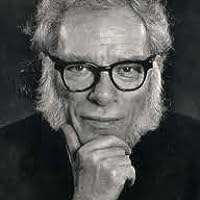
“They won't listen. Do you know why? Because they have certain fixed notions about the past. Any change would be blasphemy in their eyes, even if it were the truth. They don't want the truth; they want their traditions.”
― Pebble in the Sky
― Pebble in the Sky
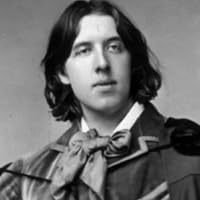
“Knowledge would be fatal. It is the uncertainty that charms one. A mist makes things wonderful.”
― The Picture of Dorian Gray
― The Picture of Dorian Gray

“You can prove anything you want by coldly logical reason---if you pick the proper postulates.”
― I, Robot
― I, Robot

“We look not at the things which are what you would call seen, but at the things which are not seen. For the things which are seen are temporal. But the things that are not seen are eternal.”
―
―
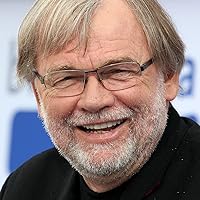
“Where both reason and experience fall short, there occurs a vacuum that can be filled by faith.”
― Sophie’s World
― Sophie’s World
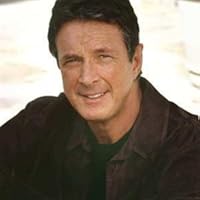
“They don't have intelligence. They have what I call 'thintelligence.' They see the immediate situation. They think narrowly and they call it 'being focused.' They don't see the surround. They don't see the consequences.”
― Jurassic Park
― Jurassic Park
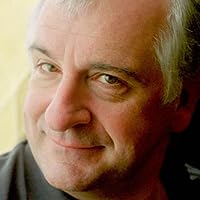
“What is the point? We assume that every time we do anything we know what the consequences will be, i.e., more or less what we intend them to be. This is not only not always correct. It is wildly, crazily, stupidly, cross-eyed-blithering-insectly wrong!”
― The Ultimate Hitchhiker's Guide: Five Complete Novels and One Story
― The Ultimate Hitchhiker's Guide: Five Complete Novels and One Story

“And although I have seen nothing but black crows in my life, it doesn't mean that there's no such thing as a white crow. Both for a philosopher and for a scientist it can be important not to reject the possibility of finding a white crow. You might almost say that hunting for 'the white crow' is science's principal task.”
― Sophie’s World
― Sophie’s World
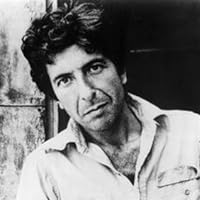
“Show me slowly what I only
know the limits of
Dance me to the end of love”
― Leonard Cohen: Poems and Songs
know the limits of
Dance me to the end of love”
― Leonard Cohen: Poems and Songs

“To know and have it all is about individuality because each one has the right not to live under the mercy of anyone with more power. So, for freedom and protection, one desires to know and have it all, but the questions remain.”
― EVIDENCE To Know and Have It All?
― EVIDENCE To Know and Have It All?
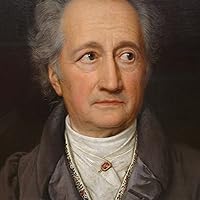
“Habe nun, ach! Philosophie,
Juristerei und Medizin,
Und leider auch Theologie
Durchaus studiert, mit heißem Bemühn.
Da steh ich nun, ich armer Tor!
Und bin so klug als wie zuvor;
Heiße Magister, heiße Doktor gar
Und ziehe schon an die zehen Jahr
Herauf, herab und quer und krumm
Meine Schüler an der Nase herum-
Und sehe, daß wir nichts wissen können!
Das will mir schier das Herz verbrennen.
Zwar bin ich gescheiter als all die Laffen,
Doktoren, Magister, Schreiber und Pfaffen;
Mich plagen keine Skrupel noch Zweifel,
Fürchte mich weder vor Hölle noch Teufel-
Dafür ist mir auch alle Freud entrissen,
Bilde mir nicht ein, was Rechts zu wissen,
Bilde mir nicht ein, ich könnte was lehren,
Die Menschen zu bessern und zu bekehren.”
― Faust. Der Tragödie Erster Teil
Juristerei und Medizin,
Und leider auch Theologie
Durchaus studiert, mit heißem Bemühn.
Da steh ich nun, ich armer Tor!
Und bin so klug als wie zuvor;
Heiße Magister, heiße Doktor gar
Und ziehe schon an die zehen Jahr
Herauf, herab und quer und krumm
Meine Schüler an der Nase herum-
Und sehe, daß wir nichts wissen können!
Das will mir schier das Herz verbrennen.
Zwar bin ich gescheiter als all die Laffen,
Doktoren, Magister, Schreiber und Pfaffen;
Mich plagen keine Skrupel noch Zweifel,
Fürchte mich weder vor Hölle noch Teufel-
Dafür ist mir auch alle Freud entrissen,
Bilde mir nicht ein, was Rechts zu wissen,
Bilde mir nicht ein, ich könnte was lehren,
Die Menschen zu bessern und zu bekehren.”
― Faust. Der Tragödie Erster Teil
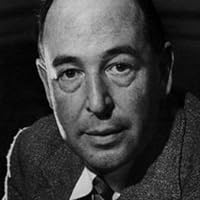
“I do not think there is a demonstrative proof (like Euclid) of Christianity, nor of the existence of matter, nor of the good will and honesty of my best and oldest friends. I think all three are (except perhaps the second) far more probable than the alternatives. The case for Christianity in general is well given by Chesterton…As to why God doesn't make it demonstratively clear; are we sure that He is even interested in the kind of Theism which would be a compelled logical assent to a conclusive argument? Are we interested in it in personal matters? I demand from my friend trust in my good faith which is certain without demonstrative proof. It wouldn't be confidence at all if he waited for rigorous proof. Hang it all, the very fairy-tales embody the truth. Othello believed in Desdemona's innocence when it was proved: but that was too late. Lear believed in Cordelia's love when it was proved: but that was too late. 'His praise is lost who stays till all commend.' The magnanimity, the generosity which will trust on a reasonable probability, is required of us. But supposing one believed and was wrong after all? Why, then you would have paid the universe a compliment it doesn't deserve. Your error would even so be more interesting and important than the reality. And yet how could that be? How could an idiotic universe have produced creatures whose mere dreams are so much stronger, better, subtler than itself?”
―
―

“Postulates are based on assumption and adhered to by faith. Nothing in the Universe can shake them.”
― I, Robot
― I, Robot

“Science is often misrepresented as ‘the body of knowledge acquired by performing replicated controlled experiments in the laboratory.’ Actually, science is something broader: the acquisition of reliable knowledge about the world.”
― Collapse: How Societies Choose to Fail or Succeed
― Collapse: How Societies Choose to Fail or Succeed

“It must be recognized that in any culture the source of law is the god of that society.”
― The Institutes of Biblical Law, Volume 1 of 3
― The Institutes of Biblical Law, Volume 1 of 3
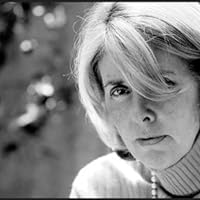
“The ancient dialogue between reason and the senses is almost always more interestingly and passionately resolved in favor of the senses.”
― An Unquiet Mind: A Memoir of Moods and Madness
― An Unquiet Mind: A Memoir of Moods and Madness

“فكرة الحداثة والعلمانية والتنوير فكرة متأخرة عن الثورة العلمية بقرنيين على الأقل وهي نتيجة الثورة العلمية ومعلولهاوليست شرطها وعلتها”
― صونًا للفلسفة والدين
― صونًا للفلسفة والدين
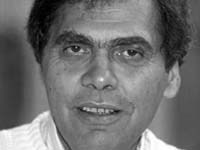
“I should go so far as to say that embedded in the surrealistic frame of a television news show is a theory of anticommunication, featuring a type of discourse that abandons logic, reason, sequence and rules of contradiction. In aesthetics, I believe the name given to this theory is Dadaism; in philosophy, nihilism; in psychiatry, schizophrenia. In the parlance of the theater, it is known as vaudeville.”
― Amusing Ourselves to Death: Public Discourse in the Age of Show Business
― Amusing Ourselves to Death: Public Discourse in the Age of Show Business

“أسمع من المحيط إلى الخليج أن من لا يقدر على إفهامنا لم تحل معادلات الدرجة الثانية بالطريقة التي تحل بها يخرف حول ابستمولوجية السقوط الحر ونسبية اينشتاين خلطا بين التعليقات الإيديولوجية والنفسية على مايزعم جاريا في وعي العلماء وتصوراتهم وبين فهم آليات الإبداع العلمي وقوانينه”
― صونًا للفلسفة والدين
― صونًا للفلسفة والدين

“One of the advantages of science is that one's work, ultimately, is either replicated or it is not.”
― An Unquiet Mind: A Memoir of Moods and Madness
― An Unquiet Mind: A Memoir of Moods and Madness

“Irony is about contradictions that do not resolve into larger wholes, even dialectically, about the tension of holding incompatible things together because both or all are necessary and true. Irony is about humour and serious play. It is also a rhetorical strategy and a political method, one I would like to see more honoured within socialist-feminism.”
― Simians, Cyborgs, and Women: The Reinvention of Nature
― Simians, Cyborgs, and Women: The Reinvention of Nature
All Quotes
|
My Quotes
|
Add A Quote
Browse By Tag
- Love Quotes 97.5k
- Life Quotes 76k
- Inspirational Quotes 73k
- Humor Quotes 44k
- Philosophy Quotes 29.5k
- Inspirational Quotes Quotes 27k
- God Quotes 26k
- Truth Quotes 23.5k
- Wisdom Quotes 23.5k
- Romance Quotes 23k
- Poetry Quotes 22k
- Death Quotes 20k
- Happiness Quotes 18.5k
- Life Lessons Quotes 18.5k
- Hope Quotes 18k
- Faith Quotes 18k
- Quotes Quotes 16.5k
- Inspiration Quotes 16.5k
- Spirituality Quotes 15k
- Religion Quotes 15k
- Motivational Quotes 15k
- Writing Quotes 15k
- Relationships Quotes 14.5k
- Life Quotes Quotes 14k
- Love Quotes Quotes 14k
- Success Quotes 13.5k
- Time Quotes 12.5k
- Motivation Quotes 12k
- Science Quotes 11.5k
- Motivational Quotes Quotes 11.5k

